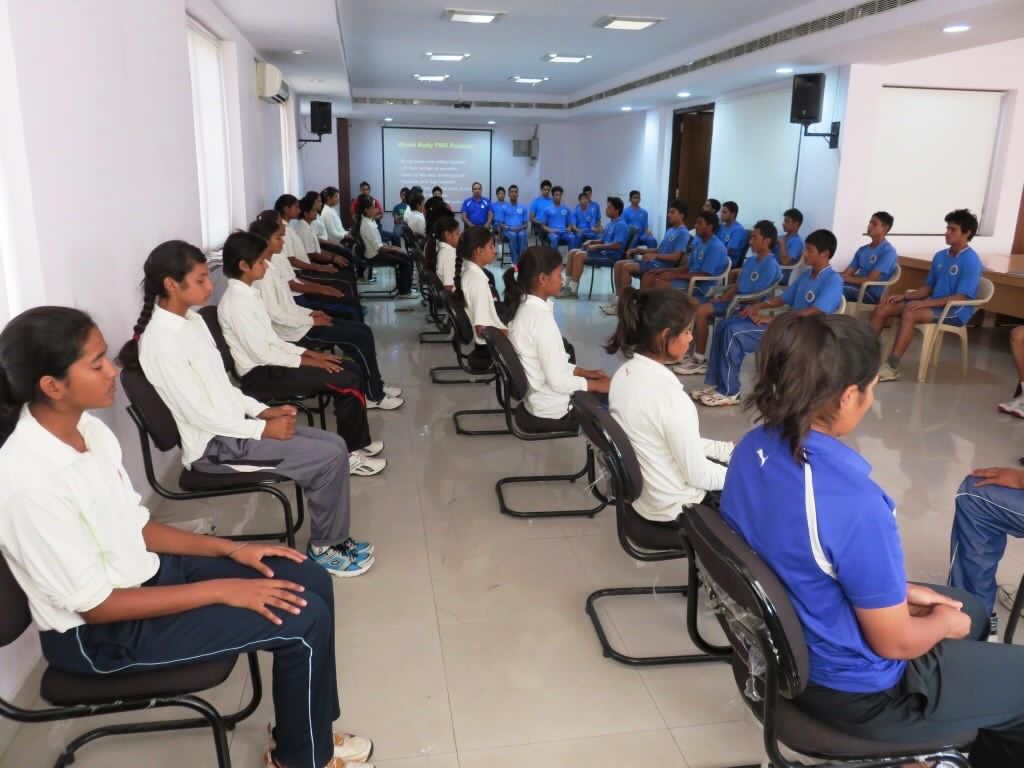
Table of Contents
EDITOR'S NOTE
Eliminating the Stigma
of Mental Health
Khalid Mohidin
Founder and Editor - Cricket Fanatics Magazine
Mental Health is a serious topic. It’s something that needs focused attention. It’s a topic that has been a sensitive one, particularly in general society and in sport. We have seen incidences where the stigma can be demoralising and destructive.
People become too afraid to admit that they have a Mental Health issue, or that they are suffering from certain mental struggles out of fear of what society or others may think.
Professional sportspeople get to do what they love for a living, but as a result, are continuously in the public eye. Some people may thrive in the limelight, while others struggle to cope with the pressure.
There is an overused phrase, “there’s a price to fame” and it can affect everyone differently. The way this affects someone is dependent on their personality and nature.
We as sports fans play a role in every sports person’s life. Our opinions and criticisms are often harsh, which is something we just assume every professional sportsperson should be able to accept and live with.
However, we must never forget that they are humans too. Yes, they have chosen the life of professional sport, but this doesn’t mean that they can’t suffer from Mental Health issues like the rest of us.
In cricket, in particular, you fail more than you succeed and you often hear that the mental aspect of the sport is what differentiates the good players from the great ones.
There is a stigma around Mental Health, where if you cite it as an issue, it can be seen as an excuse or a cover-up for failure. This got me thinking. There needs to be a spotlight on this issue.
I also noticed that there is confusion when it comes to the understanding of the difference between Mental Health and Mental Toughness.
So, I’ve decided to compile insights from experts in the field who delve into this highly important theme. They go deep into the effects, causes, management and coping mechanisms of dealing with Mental Health.
In this issue, we lay out everything you need to know about Mental Health and how to to protect your mental state, hoping to eliminate the stigma around this extremely important issue.
So sit back, grab a beverage and a snack, and enjoy issue 12 of Cricket Fanatics Magazine.

BECOME A PATRON
By Khalid Mohidin
A very special announcement that I believe will change the face of the way cricket is supported in South Africa.
Hey, guys! Welcome to Cricket Fanatics Magazine. I would like to welcome you to the first and only fan-driven Cricket publication in South Africa.
I started this venture on 1 July 2019 with a vision to get fans from all walks of life engaged with the game and the personalities in cricket.
We want to tell the untold stories of South African cricket and we want fans to be heard.
Since we started, we covered the Mzansi Super League, Women’s Super League, Proteas Men and Women International Test, ODI and T20I series, as well as school and club cricket, with the aim of providing entertaining, engaging and educational content.
But hasn’t stopped there.
We started a Monthly Magazine where we provide multi-media content, including exclusive features, opinion pieces and analysis.
This works hand-in-hand with our YouTube channel where we produce unique cricket shows that allow fans to call in and have their say.
We have the Daily Show, which reveals all the major talking points in South African cricket.The Sunday Podcast Show where we sit back, relax and engage with the live chat, answering all the questions fans have about us and the game.
We have Off-Side Maidens, the first ever All-Women’s Cricket Show on YouTube, which helps empower women in cricket and gives them a place to share their own views on not only women’s cricket but all cricket.
We have a Legends show, where we interview all legends in cricket.
To produce all of this, we’ve invested a lot of money, time and effort to bring this to you for free.
But to keep this going we need your help. So we have opened a Patreon account.
Today, we are fortunate that technology has enabled anyone to become a patron of creative work, even if they are not a billionaire.
We have therefore launched a campaign for you as a Cricket Fan to become a patron and support us as an independent, bootstrapped publisher.
As a Patron, you also get your voice heard as a Fan.
Plus: You have the opportunity to become more engaged with the content we produce.
Every month we produce at least:
- 60 Website Articles
- 20 Daily Video Shows
- 4 Weekly Podcasts
- Match Previews
- Match Reviews
- Video Interviews
- And more…
So please join our Patreon today.

There’s a stigma associated with Mental Health
By Ongama Gcwabe
For too long we have spoken about Mental Health in cricket and not done anything of significance, it’s time we take action.
This is a subject that has fascinated me for a long time especially because I have heard a lot of elite sportsmen publicly say that Elite Sports is all about “Mentality” or “Grit”.
This pushed me to find out more about the subject. In my quest for understanding everything about mentality in sport, I was connected with Adrian McInman through one of the best cricketers in the country in Eddie Moore.
Adrian McInman is a renowned Psychologist who I’ve worked with before on a more personal article.
Read: Proteas need an Adrian McInman
“I see Mental Health, like physical health, as a subsection of health,” McInman explained in an exclusive interview with Cricket Fanatics Magazine.
“I am more concerned about mental fitness than Mental Health because I am not working with regular people but Elite Sports People.”
I’ve written on Mental Health before and worked with McInman but the one thing that sparked my interest to give it a go again was a documentary I watched on SuperSport in March 2021.
The doccie was titled “The Weight of Gold” and was narrated by legendary American swimmer Michael Phelps. The documentary did an amazing job in painting a vivid picture of how Mental Health and/or Fitness was being ignored in Sports.
I rushed to McInman because he is the one individual who is not only qualified in the subject but also very experienced. Having worked in 136+ organizations in over 26 countries, I just knew that if there’s anyone within my reach I could ask about the attention given to Mental Health, it was him.
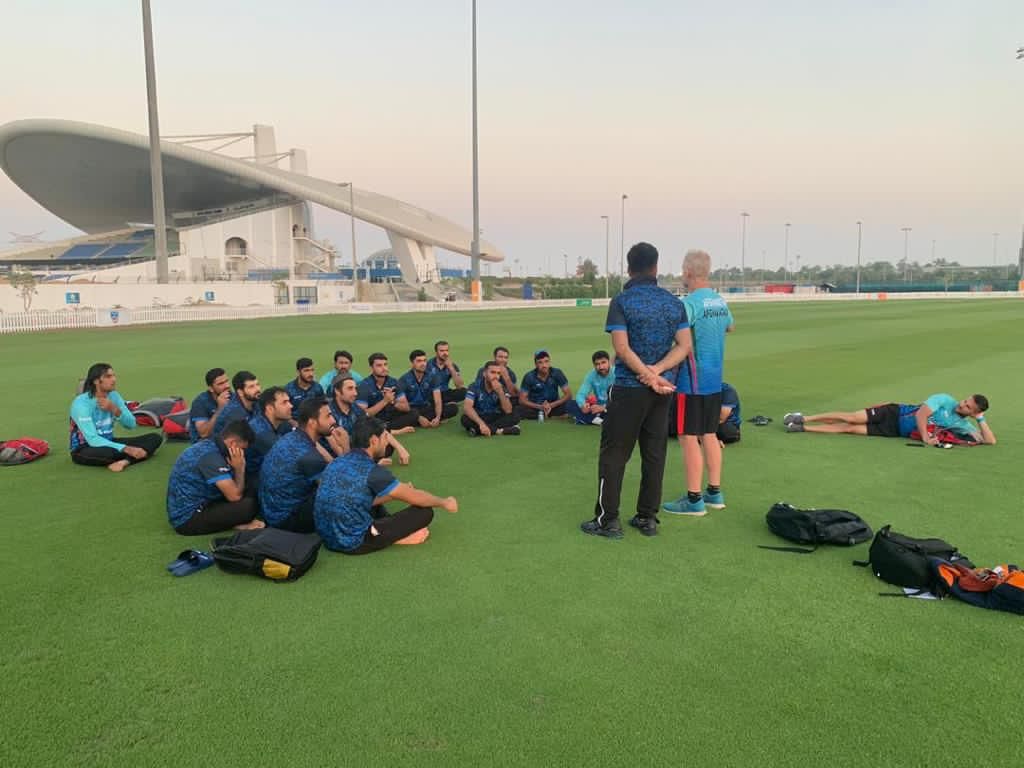
So I asked Adrian – Is Mental Health given appropriate attention in Sport?
“I’m going to answer this question using a four-part question:
– Is Mental Health being given enough priority in Sport? No!
– Is Mental Health given enough priority in Cricket? No!
– Is Mental Fitness given enough priority in Sport? No!
– Is Mental Fitness being given enough priority in Cricket? No!”
It seemed like an obvious area that every professional team would be working on, given that almost all, if not all, great players rate “mentality” as a defining factor between great players and average ones.
So, my follow up questions were – Why is this happening? Why are we ignoring this if it is rated so highly by players?
“If you want to build a house, are you scared to see an Architect? Or are you happy or exhilarated to see an Architect because you know something cool will come out?” Adrian asked.
“If you want to see a psychologist are you going to be happy or are you going to have the same feelings you had when you wanted to see an Architect?
"The answer for this is- No! Because you are not accustomed to Psychologists. Because most people have never had any dealings with professionals like myself, they become uncomfortable and scared.
"They are scared because:
1. The unfamiliar.
2. The stigma associated with Mental Health lies in the same realm as psychiatry and what we call abnormal people.
“People do not view seeing a psychologist as a way of getting themselves tools that will make them better one way or another. Instead, an average person in the community has a negative view of Mental Health.
“And I do not blame someone who’s never seen a psychologist like me for thinking this way. And I believe the psychology sector isn’t doing enough to destigmatise the profession and there’s a lot they can do."
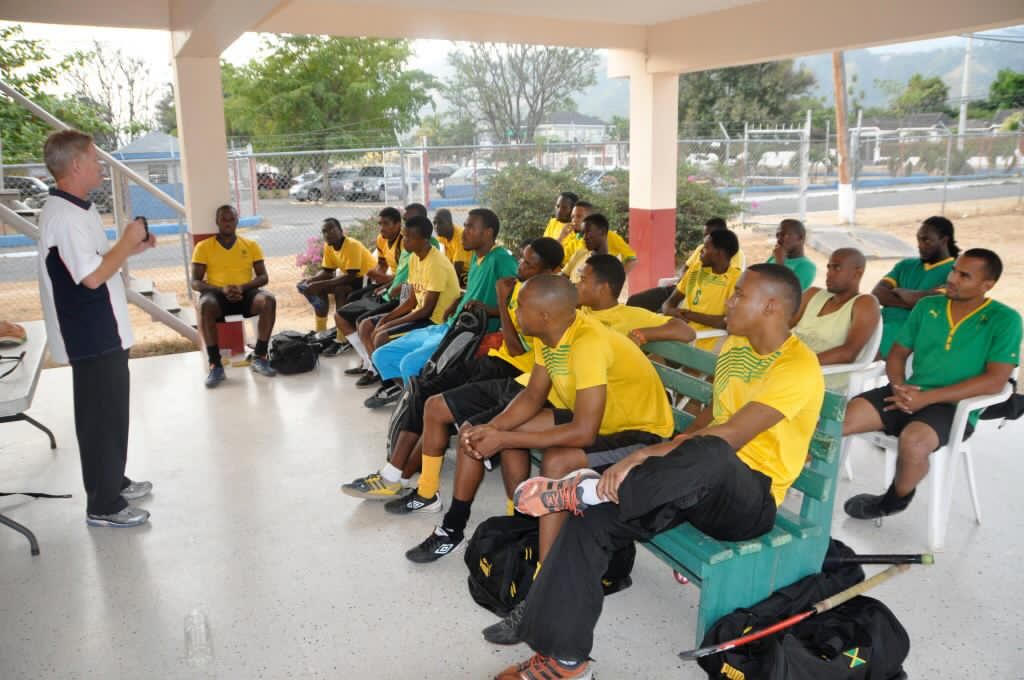
Are fear and stigma the only reasons this is being ignored, while we continue seeing players failing time and time again?
I’m not talking about failing on the field of play, I’m talking about failing to hold themselves together properly in life.
In South Africa, we have our proven cases of what happens when we fail to pay attention to the mental side of things and not taking care of our players the best way possible.
READ: "I was born with a cricket bat" – Christiaan Jonker
So, what other factor can be causing us to ignore this at such a high rate?
“A major reason why Mental Health/fitness is not given appropriate attention is the lack of education by the people responsible for hiring,” McInman explained.
“The chairman of the board, the board members, the Director of Cricket, CEOs and to some extent head coaches have just not educated themselves about this.
“On top of that, many of these people have religious beliefs that make them a little bit closed-minded about using sports science to improve the wellbeing of players. It all ends up sabotaging the possibility of helping their players.”
So, how can the decision-makers see value in hiring someone like Adrian if they are not open-minded? And I’m not talking about just hiring these specialists, I’m talking about really giving them the backing and space to effectively do their job.
“I think what is happening is that there are too many uneducated people in important positions in cricket or sport, thus limiting specialists," he continued.
“Take analysts, for instance, I’ve worked in enough teams to have seen how they are treated. A lot of analysts have a huge ability and have a lot of cool stuff that they can provide — oftentimes what happens is that they are given small amounts of time to work with the players and show them what they need to see and understand.
“They are told – ‘just give them some motivational videos. Show them videos of players hitting sixes, get them pumped up and excited' – when analysts can be providing them with so much more.
“I think it’s about time that Sport and Cricket, in particular, accept the fact that if you are in management you need a certain level of education, not only in psychology but in other related subjects as well.”
This is not a new issue in sport. In cricket in particular, it has been ignored for so long. I remember former England bowler Steven Harmison being quoted saying: “I spent 10 years hiding depression.”
English cricketer Nic Compton was also very public about how he hid depression in his playing career and how dealing with it early on in his career could’ve perhaps propelled his career to greater heights than what it eventually became.
It’s crucial to understand what prevents us from really honing in on this issue to do better.
“You don’t tend to get four-year contracts. There are not many cricket Psychologists who have four-year contracts to improve not just the Mental Health but also the physical health," Compton said.
We have seen consequences of not having specialist mental skills trainers more recently with Sri Lankan players.
READ: Kusal Mendis Arrested for fatal car crash.
READ: Sri Lanka player suspended for possession of narcotics.
“If those boys were advised six months prior to those incidents that they were going to spend 30 minutes with a sports psychologist, there would have been more chances for them to make better decisions," McInman continued.
“I don’t see how sitting down with a coach is going to motivate them to make better life decisions.
“What is needed are Specialists. Psychologists with enough field experience to better equip players with what they need to not only perform better on the field but in life as well.”
The impact of these specialists is unmatched and no coach can single-handedly have such an impact.
“I was training a girl called Sinalo Jafta. She was about to give up playing cricket at the semi-pro level. I trained her and the next thing that happened was that she was in the SA A team, then to the Proteas Women team and then she informed me that she had a contract with the Proteas," McInman alluded.
"I had no idea when I was training her that she was thinking of giving up playing cricket. So that’s what specialists bring to the table. Something no coach has the expertise to do.”
I believe that one who points out the wrongs without providing solutions makes them part of the problem. So, here’s the solution or recommendation from Adrian McInman:
“I would suggest that there needs to be a move away from what is viewed as the ‘old boys club’. The ‘oh I used to play with such and such thus I’ll be familiar/comfortable working with them and hiring them.’
“Using these criteria is good on one end because you want someone who will fit in with the environment but on the other hand, it hurts the team because it puts out a message that we don’t want to work with anyone who will put us out of our comfort zone.
“But to improve, you need Change.
“I’ll give you an example, in the West Indies – they advertised only for a local. In Ghana, they wanted to give Ghanaians more responsibility which is good.
“But if you’re playing with teams who do not really care where their staff come from as long as they are the best at what they do, then the team with more constraints is going to come up second.
“And that’s exactly what’s happening in the West Indies.
“Why is Juventus paying a lot of money for Cristiano Ronaldo? Why does Barcelona pay a lot of money for Lionel Messi? It’s because these guys deliver results.
“Surely for sports personnel, if you want to have a really good team with great mental fitness then you have to hire a mental skills trainer with something to really offer the team.
“Don’t just hire people because they are part of your old boys' club. Hire competent people who are specialists in what you’re looking to develop or improve.”
For readers who are not familiar with Mental Health issues in Cricket, we have you covered in this issue of Cricket Fanatics Magazine.
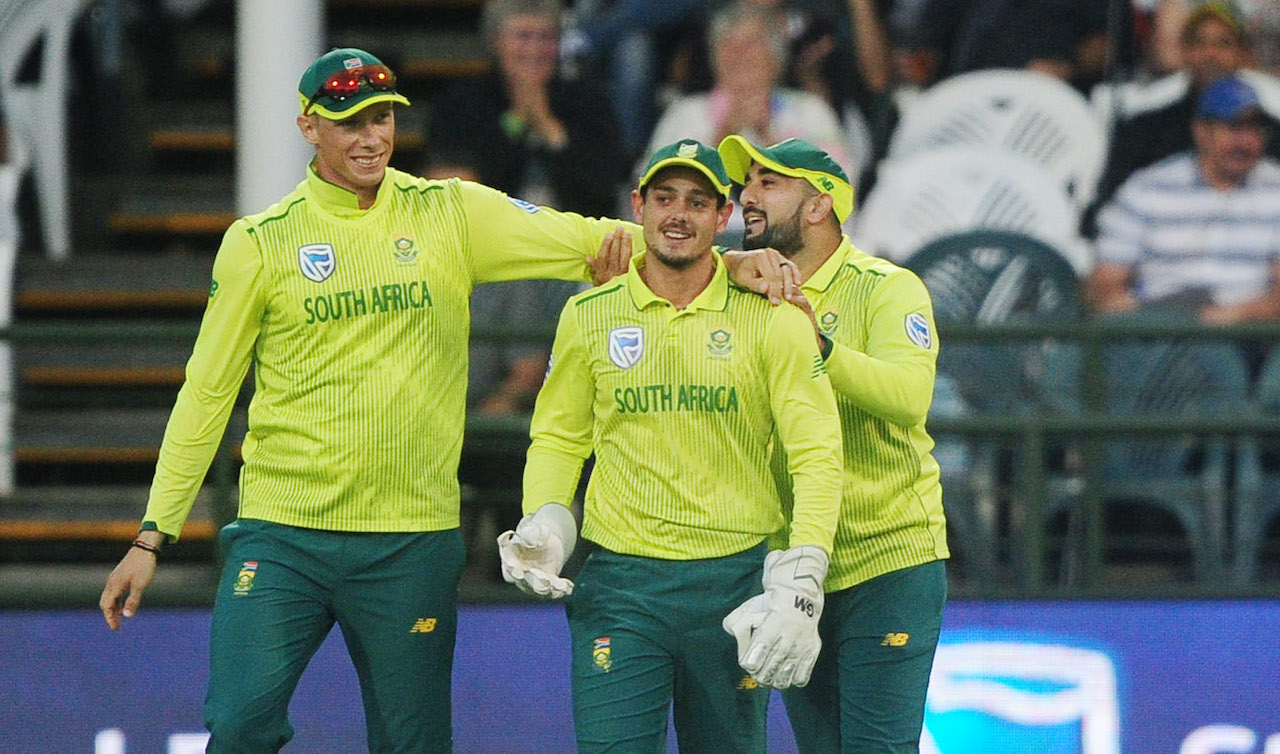
Big Match Temperament: The key to performance under pressure
By Chris Chiwanza
Cricket is a battle. Bat versus ball. Bowler versus batter. But to have the best chance at winning this battle, the players have one battle to win first. The internal battle of doubts, fear, confidence, anger and impatience.
Emotions can get in the way of a player successfully executing their skills. These are the emotions that create pressure for a player.
Winning this internal conflict is the first step to a player giving themselves the best chance at success. And those that win this conflict, they are the ones whom people refer to as having the right temperament.
The importance of the right temperament is important in cricket. A player with all the talent and skill but lacking in temperament will not go very far. And this is why cricketing legend, Sachin Tendulkar, who had one of the longest careers, says selectors must put that ahead of stats.
He said those words in 2013, while speaking at an event to commemorate the platinum jubilee of the Karnataka State Cricket Association.
He stressed that the skill to absorb pressure is a vital indicator of fresh talent.
"When it comes to selection, one has to analyse a player. Even if he fails in a few matches, one needs to see if he has the ability to withstand pressure and execute at the international level," said Tendulkar.
"I have seen players who are exceptionally good at the domestic level not being able to perform as well in international cricket."
The comments made by Sachin Tendulkar are not surprising, temperament is a hot topic in cricket. Its importance cannot be overstated. And it is not in cricket alone where it matters, it is critical in all sports and outside of them in general. But, what is it?
Behavioural scientists say that temperament is the way in which we interact with our surroundings. Therefore, in cricket or sports, it is the way in which players/athletes behave or react to their surroundings. And if we take that definition and use it to define big match temperament, we arrive at the conclusion that it is how players behave in high pressure moments.
Without doubt, all professional athletes have the temperament for competing with other extremely talented athletes. But not all of them possess the ability to not only perform at their best, but to exceed what many thought possible when confronted by extreme pressure.
No wonder there are some sections of fans and commentators that believe that it cannot be taught. That you either have it or you do not.
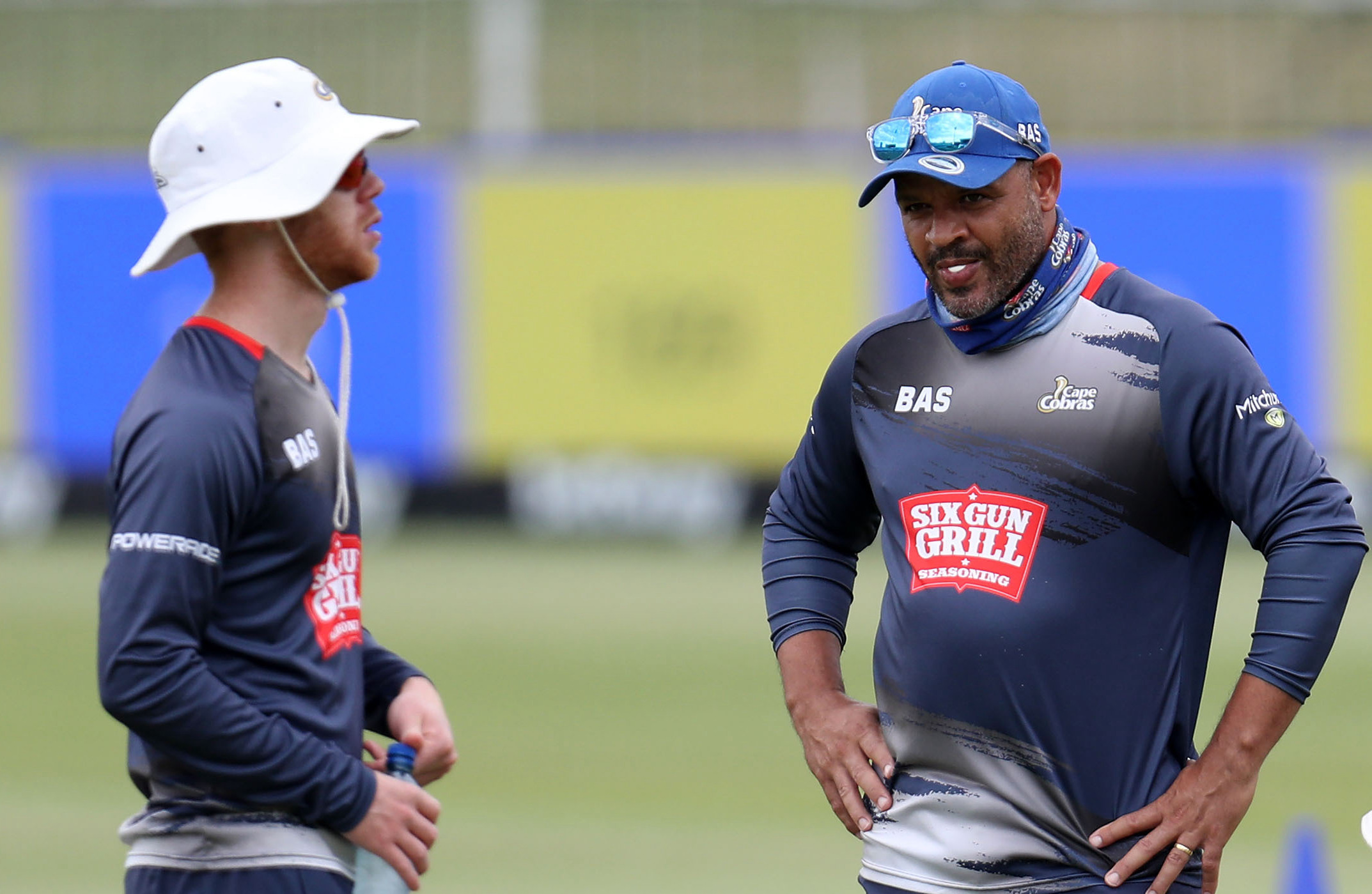
THE LAZARUS MODEL
There is a popular saying, "you are not what other people say you are, but you are how you respond to what other people say you are."
In their paper, "Stress, Appraisal and Coping," Richard S. Lazarus and Susan Folkman say, “psychological stress is a particular relationship between the person and the environment that is appraised by the person as taxing or exceeding his or her resources and endangering his or her well-being”
In other words, stress is not an event but an individual’s perceptions and thoughts regarding the event. In other words, stress is what you think it is. Stress isn’t being behind in a game, playing against a higher-ranked opponent or being in a slump. It is the athlete's interpretation of it.
"The interpretation of stressful events is more important than the events themselves," Richard Lazarus wrote.
In high pressure situations, players with big match temperament adopt an “opportunity mindset,” they focus on all the good things that can happen if they do well, as opposed to a “threat mindset,” which dwells on all the consequences of performing poorly.
AROUSAL APPRAISAL: ANXIETY VS EXCITEMENT
"The determination of a situation on being either threatening or positive, relevant or irrelevant to our situation lies in our hands."
If we were to pick one thing that stands between an athlete developing a big match temperament or not, we can reduce it to one's ability do what behavioural scientists call 'anxiety reappraisal.' This is a process of “reframing an emotional event in order to modulate one’s experience of negative or positive emotion.”
We are consistently doing it, remember when you were worked up and kept telling yourself to calm down?
When most people feel anxious, they likely to be advised by others or tell themselves to calm down, to just relax. According to Alison Wood Brooks, this is bad advice. This is because the suppression of arousal feelings prevent optimal performance
There is a fine line between anxiety and excitement, both aroused emotions and they are almost physiologically identical. In both, the heart beats faster, cortisol surges, and the body prepares for action. In other words, they’re “arousal congruent.”
The only one thing that distinguishes them is that excitement is a positive emotion, focused on all the ways something could go well. Whereas anxiety is a negative emotion focused on all ways things could go wrong.
Meanwhile, even though calmness is also positive, it’s also low on arousal. Now for athletes to perform at their best, they need to reach a certain level of arousal. Yuri L. Hanin, called this the Zone of Optimal Functioning.
For most people, it takes less effort for the brain to jump from charged-up, negative feelings to charged-up, positive ones, Brooks said, than it would to get from charged-up and negative to positive and chill. In other words, its easier to convince yourself to be excited than calm when you’re anxious.
DEVELOPING A BIG MATCH TEMPERAMENT
Contrary to those that think that a big match temperament is an innate quality, it is not. It follows the same 'rules' as skill and talent. While there are many naturally talented athletes out there, it is not all of them that manage to develop their skill to become the best in their field. Similarly, while some people may possess character traits or an innate disposition that makes it easy to develop a big match temperament, with practice, anyone can.
However, even though this is case, the process does not happen overnight. Like physical skill that requires repeated and targeted intentional practice. It like culture, it has to be a way of life, a mental habit.
Dr Helgo Schomer, a behavioral psychologist based in Cape Town who has worked extensively with individuals and teams locally and abroad, says the ideal 'performance states' do not just happen. It takes more than a just a weekend retreat.
"Mental training is not a quick fix for ailing performance. The mind changes reluctantly. The most counter-productive time to implement a psychological skills training programme is at the start of the tournament.
It can be detrimental to make athletes aware of psychological aspects of competition that should be addressed, when there is insufficient time to learn the new psychological skills used for control," he says.
Get More Clients With Cricket Fanatics Magazine
Cricket Fanatics Magazine has the visibility, infrastructure, expertise and toolset to automate your marketing and branding.

“Mental Health is incredibly important for the person behind the player”
By Emily Norris
With this month’s issue of the Cricket Fanatics Magazine all about Mental Health, I had the privilege of interviewing psychologist and SACA Player Development Manager, Kirsten van Heerden, who was formerly a professional swimmer for South Africa for many years, where she developed an interest in sports psychology and mental training for performance.
She now has her own practice in Durban, working with various athletes from different sports. Through her experience of transitioning from swimming into normal life she has become interested in:
a) Mental Health within elite athletes, and
b) preparing elite athletes for life after sport.
This is where her work with SACA comes in. SACA have Player Development Managers for each region, and Van Heerden represents the KZN region, where she looks after the Dolphins players.
When working with the players, she uses a programme called Player Plus, which is all about wellbeing, Mental Health, helping the players think about what they want to study, and ultimately helping them to think about what they want to do in life after cricket.
In addition to her everyday occupation, Van Heerden runs her own non-profit organisation called ‘Girls Only Project’ that deals with issues within women’s sport, and particular things like Mental Health and body image – the topics that are often not spoken about.
She has her own podcast series called ‘Behind the Dream’, which looks at what it’s really like to be a professional athlete, some of the ups and downs that come with it, some of these ideas of Mental Health, some of this transition [from professional athlete to life after sport].
She also wrote a book called Waking from the Dream, where each chapter is a different story of an athlete’s retirement out of sport, and the challenges that they faced.
One can see this is a topic that she is passionate about, and by hearing what she has to say, we can all learn something from her.
There were two recurring and overlapping themes that Van Heerden used throughout the interview, and those were ‘Mental Health’ and ‘Mental Toughness’.
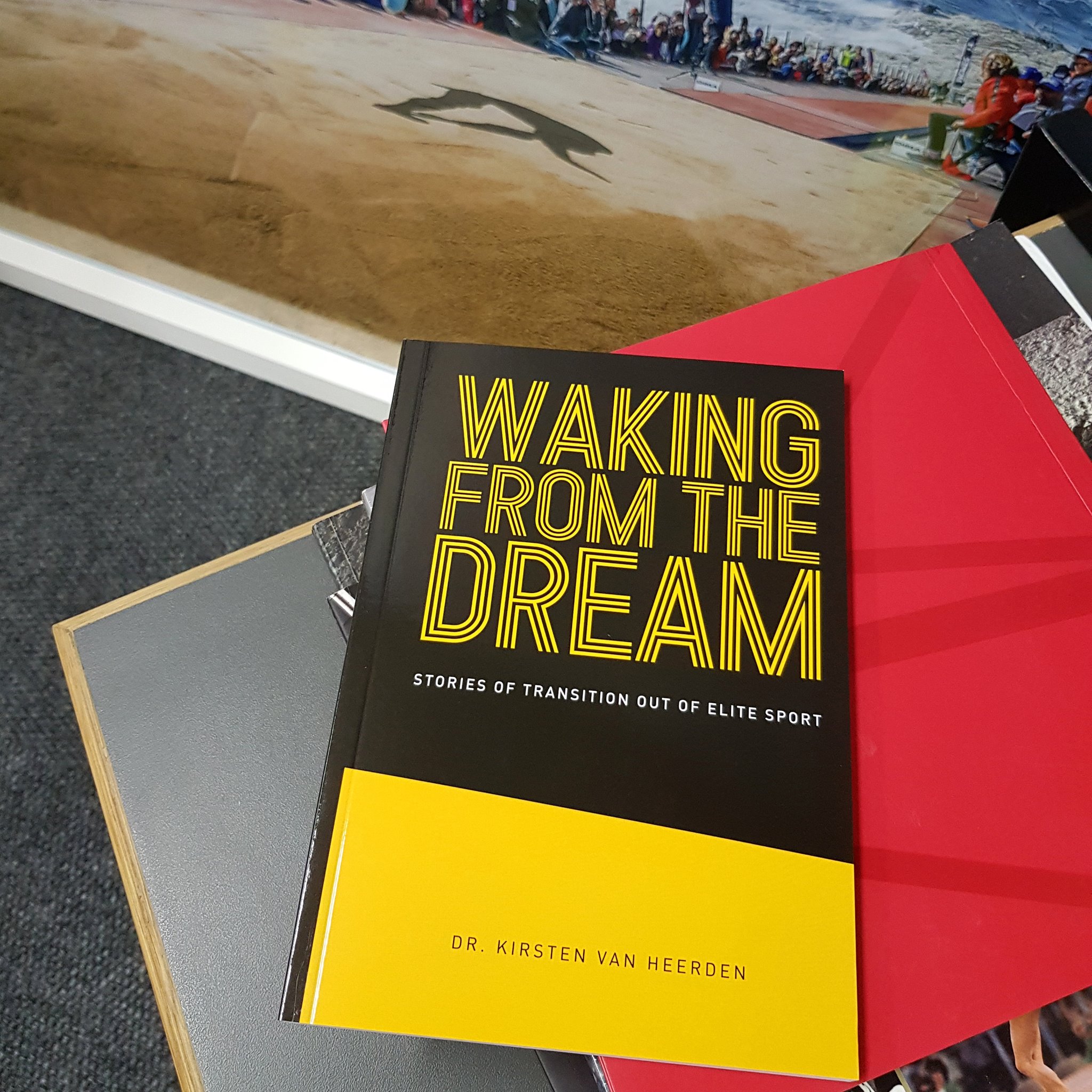
Prior to this interview, I had never considered ‘Mental Health’ and ‘mental toughness’ as two separate concepts, but instead I had always thought of them as one. Van Heerden stated that, “a fundamental issue to understand is that there is a big difference between mental health and mental toughness.
They are overlapping concepts, but they are separate. Athletes can be mentally tough, yet they can still battle with Mental Health issues.”
This isn’t something I had thought of before – the fact that they are different concepts but that they can indeed co-exist. Athletes can still perform even if they have Mental Health issues.
“Probably one of the best examples outside of cricket is Michael Phelps the swimmer – [he] won more gold medals than most countries put together. The most decorated Olympic athlete, yet really struggled with Mental Health issues and is very open now about his battle with depression and anxiety.”
As fans, we often think that when a player is performing well “they must be good and life is good, and it’s not like that. Athletes, weirdly enough, can perform even if they are depressed, even if they are anxious.”
Van Heerden stated that it’s not that Mental Health isn’t important for performance, but that it’s more important for the person behind the player.
“They’re not just cricket players, they are people first, and the rest of their life gets affected. If you are really battling – with anxiety or depression (which are obviously the most common), [then that’s when] it can begin to leak into your game and affect your preparation, and affect your clarity of thinking in your performance.
"For me, Mental Health is what is critical for the person, and mental toughness for the player. Essentially what we talk of when we say ‘mental toughness’, is this ability to execute under pressure. You have a lot of athletes that in training are amazing, but when it actually counts, they can’t put a performance together; and so, mental toughness essentially is this ability to perform under pressure, perform like you want to execute under pressure. And of course, that is absolutely critical to performance.”
Furthermore, Van Heerden said that it’s important, within team setups, to have someone like a sports psychologist who players know they can go and talk to.
“If we’re saying we know that the mental side is important, then it’s critical that they know they can get the help that they need. Because otherwise we treat athletes like commodities and basically, ‘as long as they’re performing, we don’t really care what’s going on with them’. But I think it shows that we actually care about the wellbeing of the person, not just the cricket player, by offering the support.
"There’s a growing understanding that you need to have these Mental Health professionals, and the understanding is that you want to make well-rounded people. An elite-level sport doesn’t always allow for that, so we’re saying that if we really care about the players, we need to make sure we are looking after them in their entirety.”
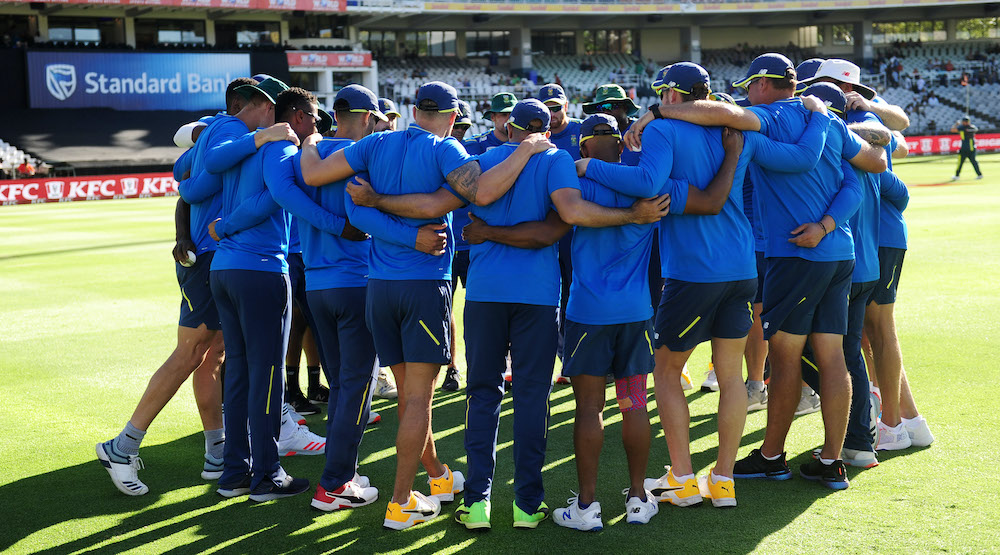
So many athletes Van Heerden has worked with realised that there had been a time in their careers when they may have been depressed, but no-one talked to them [about it] or raised awareness or education; that’s why she says it’s vital to have someone available to the players to be able to talk about these things.
Each sport is different and comes with their own pressures and stress, but what makes cricket tough is that at the top level, players are away so often and travel a huge amount, especially if they’re in the national team. And if they’re playing in T20 leagues too, then they are constantly travelling.
Players spend very few days a year at home, which adds extra pressure on to them. The bio bubbles nowadays make it even more difficult for players.
“I heard a stat that said, ‘batsmen only perform with the bat in one out of three matches’, i.e., one in three matches do you actually really perform with bat – so in other words, at least twice, you [as the batter] are walking out and probably not going to do well, whereas [with] other sports maybe you’d be a little bit more consistent in terms of the performance that you get.
"So that is one tough thing for cricketers – performance can maybe be a little bit more up and down. You just get a great ball and you’re out – and that’s it. The nature of the game in terms of the performance can be tough; tolerating those waves in performance can be difficult for players.”
There are several different skills that Van Heerden teaches players to deal with dips in form and being dropped from squads. She teaches players different skills, depending on what they are struggling with.
“Some players, what we need to help them with is – let’s say they’re struggling with form – is teaching them different ways of focusing; focus for performance. [Things like:] being able to calm yourself down, breathing techniques, what you should be focusing on, how you build confidence.
"And a similar thing if you’ve been dropped – coping with the justifiable disappointment, and then again, what to re-focus on, how to control the things that you can control. If players become depressed or anxious because of form, then it can cross over into Mental Health issues.
"That’s when I would say that it’s OK not to be OK. Speak out and get help. Seek someone who you can talk to about those feelings. You’re not supposed to do this on your own. You’re supposed to be able to talk about these things, you have to. It’s too hard to do on your own.
“There are foundational mental skills that [we] teach – for example, skills of attentional focus, skills of being able to quickly re-focus, skills of letting go of mistakes, breathing techniques to be able to calm down, teaching players ways of thinking – they get worried about thoughts going through their heads (doubts, anxieties, or negative thoughts) – and teaching them ways to not be afraid of those thoughts. [Teaching players] to notice [those thoughts] and to let them float away and re-focus on things that are going to help them perform.
"So ultimately it’s teaching the players about thinking skills and then also some practical breathing techniques and body language skills to help with performance.”
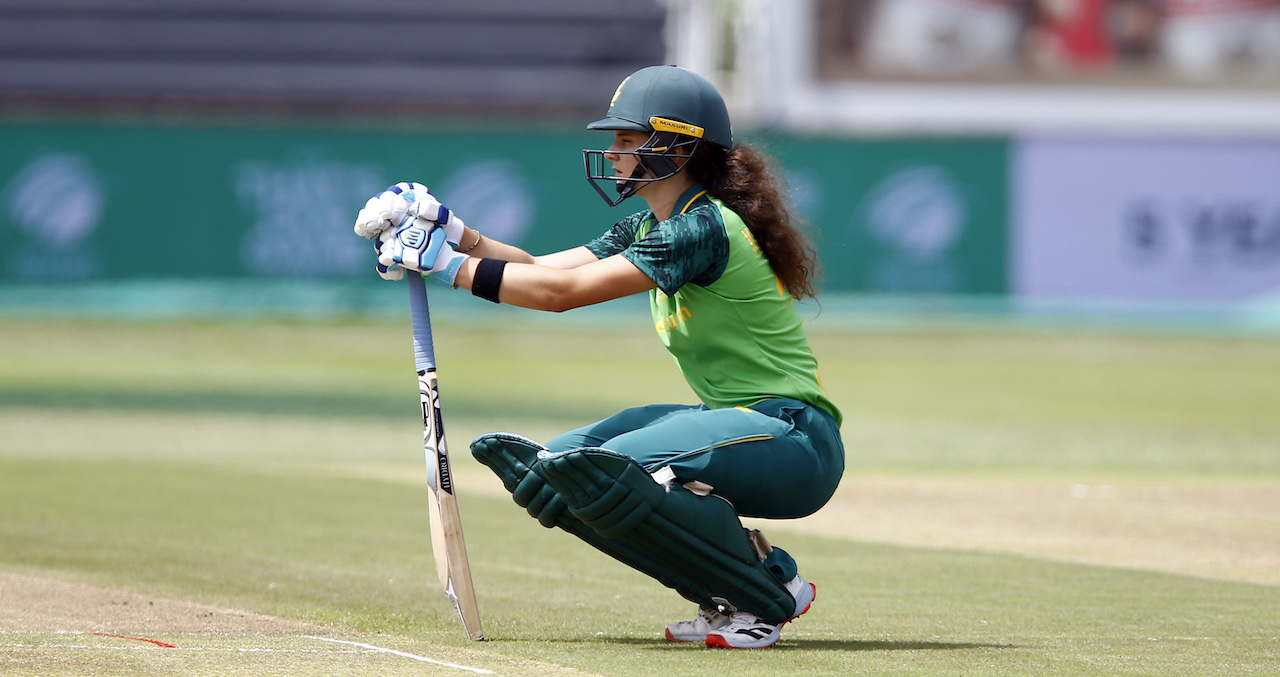
Van Heerden is not just a psychologist and a PDM for the Dolphins, she serves as the PDM for the Momentum Proteas (Proteas ladies’ team) and works with the individual players.
In terms of Mental Health, “there is a lot more of a push from SACA’s side to raise awareness, to educate players around these things. When I run workshops with the Proteas ladies, we speak a lot about Mental Health. It obviously helps as a psychologist and then also being a PDM, that you can speak from the point of being a psychologist.
"There is a big push regarding cricket from SACA, as well as worldwide, to realise that Mental Health is one of the vulnerabilities of players. This is one of the critical factors that we need to get better at helping players with and educating them. I know there is a PDM that works with the Proteas men as well.
"[With regards to the] bio bubbles, they also had a psychologist speak to them around what they can do to manage themselves within the bubble, what to expect, there were hotlines they could call, there were daily Mental Health check-ins. So, there’s been quite a lot done from the SACA side of things, with the national teams.”
On the back of the Naomi Osaka incident with the media, I asked van Heerden for her opinion on the incident and whether she believes that professional athletes should have to attend press conferences or whether they should have the choice.
“[When it comes to] this Naomi Osaka incident, I think really what it’s shown is just the stigma towards Mental Health. I read somewhere that if she had said that she had something physically wrong with her and couldn’t go to the press conference, no-one would have minded. But because she says that she is suffering from Mental Health issues – depression, social anxiety – and doesn’t want to do the press conference, everyone’s up in arms.
"So again, it’s this stigma attached to Mental Health. We’re so much more tolerant of [physical] things. If she was physically ill somehow, no-one would have batted an eyelid. There’s this profound misunderstanding of Mental Health. As professional athletes, the job of a professional athlete is not to speak to the media. The job of a professional athlete, like Naomi Osaka, is to play tennis and win matches. That’s what she’s paid to do.
"Yes, it’s a good idea to speak to the press, and of course, it helps build brands and all the rest of it. But I think sometimes we feel like we have a right to dig into these athletes’ lives and hear their inner thoughts and I don’t think we have a right at all in that respect. It can be mutually beneficial, but sometimes it can cross a line.
"In women’s sport, Mental Health is really important – there are other specific issues, for example, eating disorders or disordered eating, are so much more prevalent in female athletes. There are very specific issues like that, that in general more women and female athletes have to deal with, than male athletes. So, it is something that is important to be spoken about.”
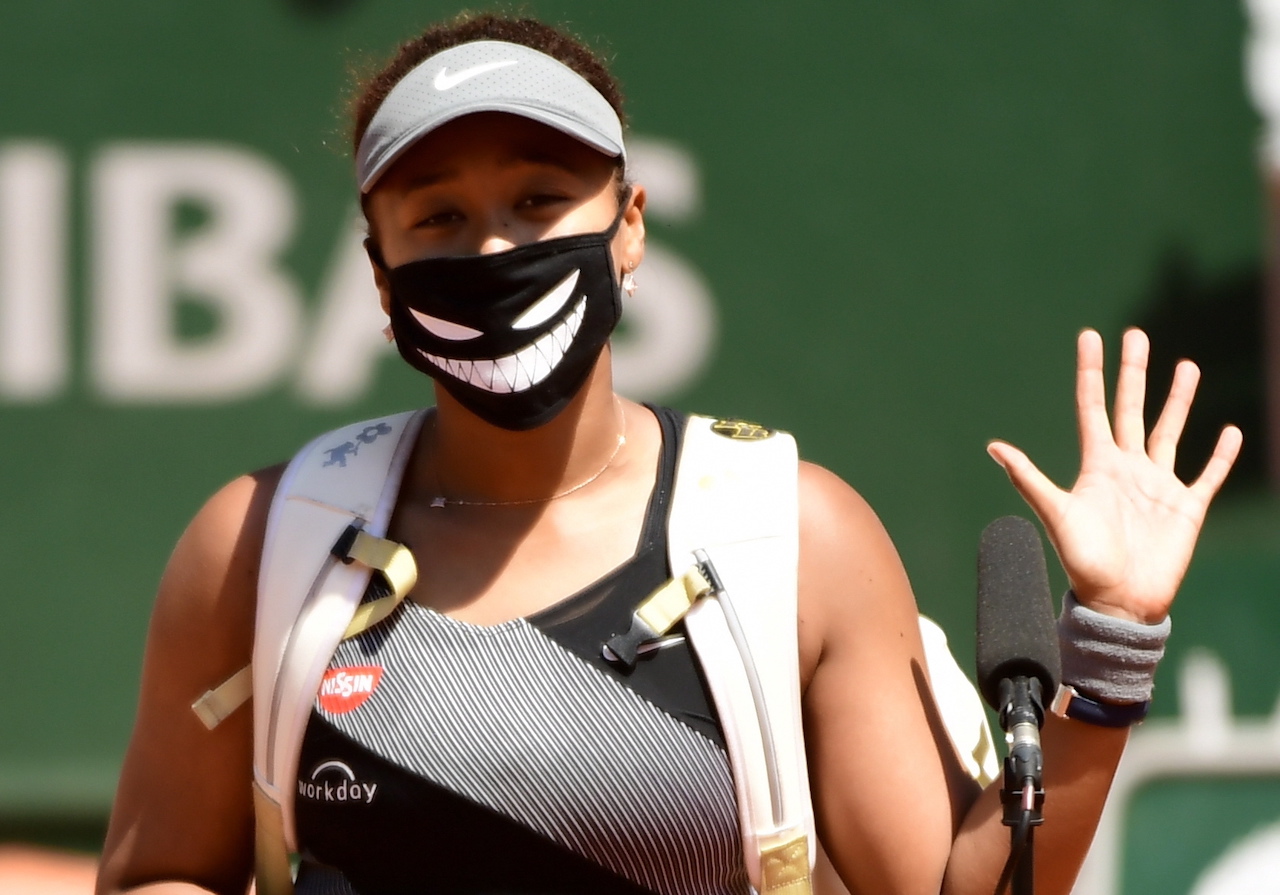
At the end of the interview, Van Heerden reiterated how important Mental Health is for the person behind the player, but is also important for everyone in general.
“Mental Health is not just about mental illness. We speak about depression and anxiety but if we speak about Mental Health, it’s also about flourishing and wellbeing.
"All of us have to pay attention to our Mental Health and I believe there are daily things that we need to do to tend to that. I was listening to something the other day and I love this analogy, they were saying, ‘you brush your teeth at least twice a day, you take a shower, you clean your body, you practise good dental hygiene, good physical hygiene, but do we do daily things to check-in and clean our minds?’ – mental hygiene in a sense.
"We look after our body, we look after our teeth, but then when it comes to our Mental Health and wellbeing, we just tend to leave these things to chance. We don’t do things every day to ensure that things actually are okay, and to ensure that we are looking after our minds and our emotions. It’s a mindset shift – saying: ‘I have to take care of my body, but then I also have to take care of my mind.’
"There should be daily routines that you have, and things that you know help you. After a week or two of not doing these little things that you actually know help you, you can begin to feel your Mental Health sliding and getting worse. You can talk to people to figure out what those little things are that you need to do, but it’s important. Like cleaning your teeth every day, you need to do these things every day to manage your Mental Health.”
For someone like me that has struggled with Mental Health and mental toughness throughout my life and cricketing journey, I found this interview very insightful and helpful.
It reminded me that there is always someone to heIp you through a situation and that you shouldn’t have to go through something alone. I certainly learned a lot from Van Heerden, and she gave me new perspectives on concepts, helping me to see things in ways that I hadn’t seen them before. Hopefully this article will impact you somehow, and that you will learn something from it.
Advertisement
Ezra Poole's Online Wicketkeeping Academy
Learn how to Master The Craft of Wicketkeeping Without Having to Hire a Full-Time Personal Coach.

"Mental Health more important today than it ever was"
By Marc Jacobson
In light of the prolonged effects of Covid-19 – along with its restrictions, isolation periods and bubbles – Mental Health in cricket should be prioritised more now than ever before, according to the views of reputable provincial coach Richard das Neves.
Das Neves was an accomplished coach for Easterns, having won three titles in four seasons while at the helm.
He was subsequently named Cricket South Africa’s (CSA) Coach of the Year last year, but due to the new provincial restructuring that is to take place next season, the 34-year-old was forced to turn over a new leaf.
Das Neves said it was a “massive privilege and honour” to win the accolade and that his tenure as coach featured some “magical times on the field”, which included producing new talent and creating a “winning culture”.
That winning culture stems from maintaining the mental wellness of the players, particularly during these unstable Covid times.
“Mental Health is more important today than it ever was,” Das Neves told Cricket Fanatics Magazine. “It really does need to become a priority amongst coaches, support staff and professional organisations, as well as the junior set-ups.
“It’s really important that people are aware of it and that open and honest communication happens around these types of things, in both one-on-one situations and team discussions.
“It’s vitally important to understand all the problems that come with the game, and with Covid around, along with all its bubbles that have to take place, it can be really telling on the players, as well as the staff.”
He added that this causes players to be strung out “months on end while not being able to spend time with loved ones or [enjoy] the comforts of their daily lives”.
Consequently, international players such as Quinton de Kock last season, have taken “time off” from the game due to the ongoing “bubble fatigue”, Das Neves noted.
From a coach’s perspective, Das Neves said it is important to “know” the players and be aware of “what makes them tick”, while forming strong bonds with them.
“It is important to have that relationship with players and to know their movements, such as when they’re in a good or bad space.
“You just need to open that line of communication, while [gaining] a mutual respect and trust between a coach and player,” he said, adding that it was also important that players can feel comfortable to open up to their peers or other support staff.
“If player X is having a hard time or something happened in his life, then it could be worth having a sit-down and delving into it a little deeper.
“The biggest thing is to keep your finger on the tab and really be aware of what sort of space the players are operating in.”
Aside from helping players improve in their respective performances, Das Neves, who’s currently working as a biokineticist out of the Wanderers Sports Medical Centre in Johannesburg, has prioritised “off-field interventions” as well.
“There are many off-field interventions that can play a role in performances,” he said. “Everyone is different. We’ve identified with players whose eyesight may not have been up to scratch or it may be what their background is like.
“I’ve had players in the past who’ve had to take six taxis just to get to practice and then when they arrive five minutes late coaches would get upset for [them] not being punctual.
“[We] need to understand the difficulties they’ve had in the mornings just to get there, and the fact that they’re only five minutes late was actually a miracle.”
It is these sorts of circumstances which can hinder a player’s performance, especially when they have to “wake up three or four hours before training and then arrive at training already tired”.
Das Neves, who formerly played cricket for Gauteng before retiring in 2014, said it is against this backdrop that players need to be assessed according to their PDP (Player Development Plans) and PPP (Player Performance Plans).
“You can find that certain players have had a previous trauma in their lives, so dealing with that from a psychologist point-of-view can relieve a lot of stress and you would see a massive improvement in performance from that alone.”
While acknowledging that some players will form stronger bonds with certain other players, Das Neves said it was “critical” that good relationships are cultivated within a unit of players.
“The important thing is that everyone is pulling in one direction and that there’s a common goal, [which] everyone works together to achieve.
“A mutual respect across diversity and different backgrounds really all make a difference in creating a culture and that common goal. That makes the players want to play for each other.”
With all the pressure and stress that accompanies the professional game, Das Neves said it is paramount that coaches and players alike turn to “something away from the game in order to switch off”.
“There has to be time away from the game and they must understand that it’s okay not to be thinking about work or the game 24/7.
“I always tell the players that whatever they do, they must give 100 percent. If they [are ]training, they must give 100 percent, but if they’re with their girlfriends or spending time with families then they must give 100 percent to that space.
“They need to have that ability to switch on and switch off, which I think is important from a mental perspective.”
Having moved on from Easterns, Das Neves said there are still “one or two coaching options in the pipeline”, but that he’s not yet ready to reveal anything.
“We’ll see what happens over the coming weeks or months, but I thoroughly enjoyed my time at Easterns and I wish them nothing but the best for the future.”
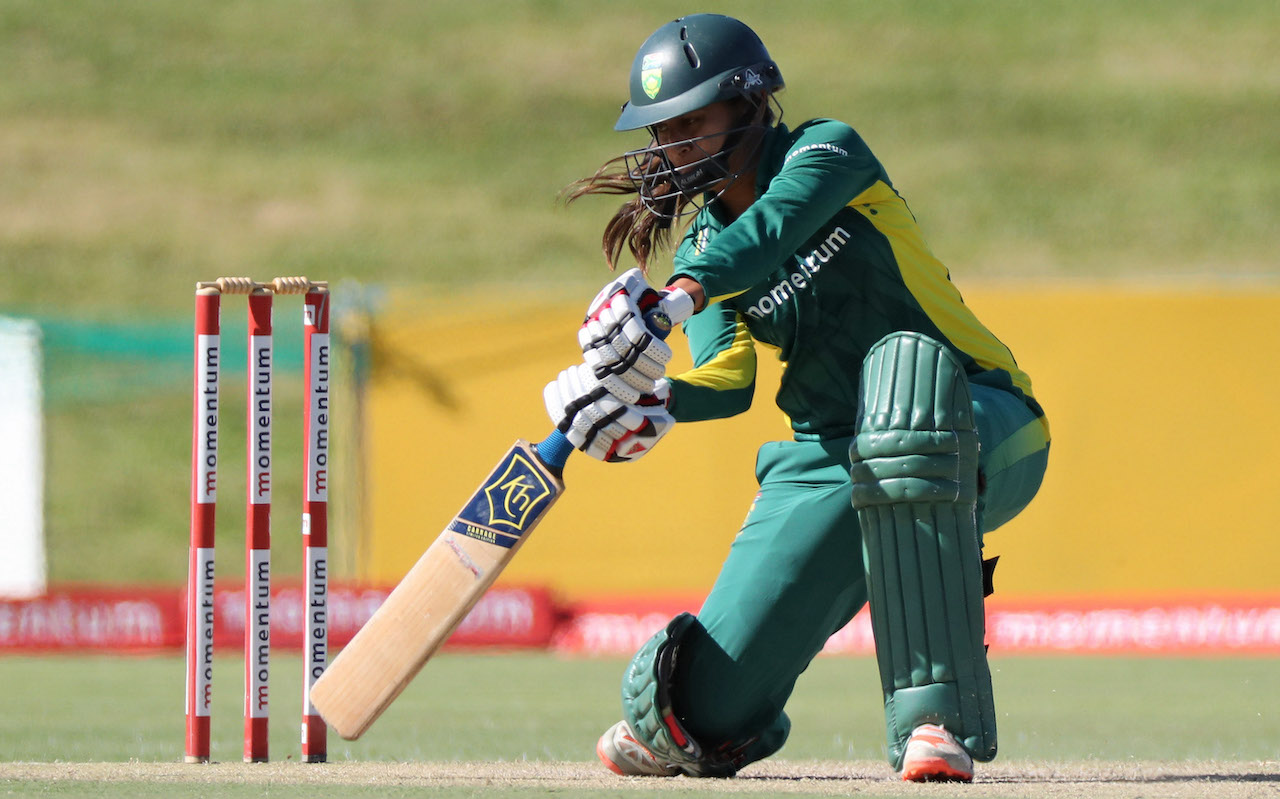
Q&A: Dinesha Devnarain on Mental Health
By Jessica & Janine October
Issues of Mental Health are often stigmatised or neglected. What are your thoughts on Mental Health and athletes in high-performance sport with high expectations to perform well?
I feel it's really important and it's evident we hear more stories of Mental Health now because athletes are finding the courage to speak about it, personally, I feel it's about time that these issues or hindrances are addressed to assist the athlete and to help others, not just in sport.
Mental Health has been a very important aspect to me for a while now, it's really important that we understand what happens between our two ears has a major impact on our thinking, perspectives and behaviour patterns.
Performance anxiety has become such a norm in high-performance environments, I feel coaches/athletes sole focus is about the result, we need to understand we aren't machines, we're loaded with emotions and senses and we human, we are more than the result and performances we put in.
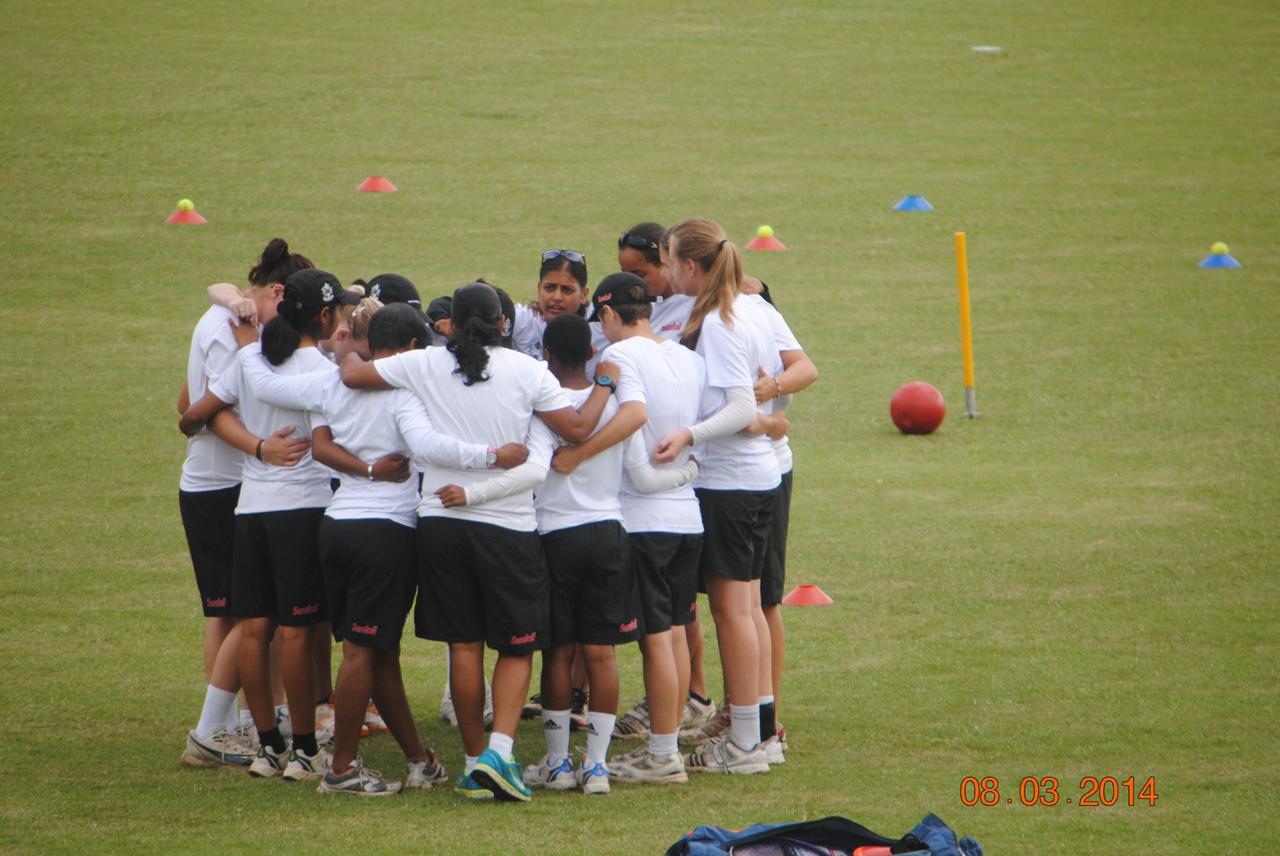
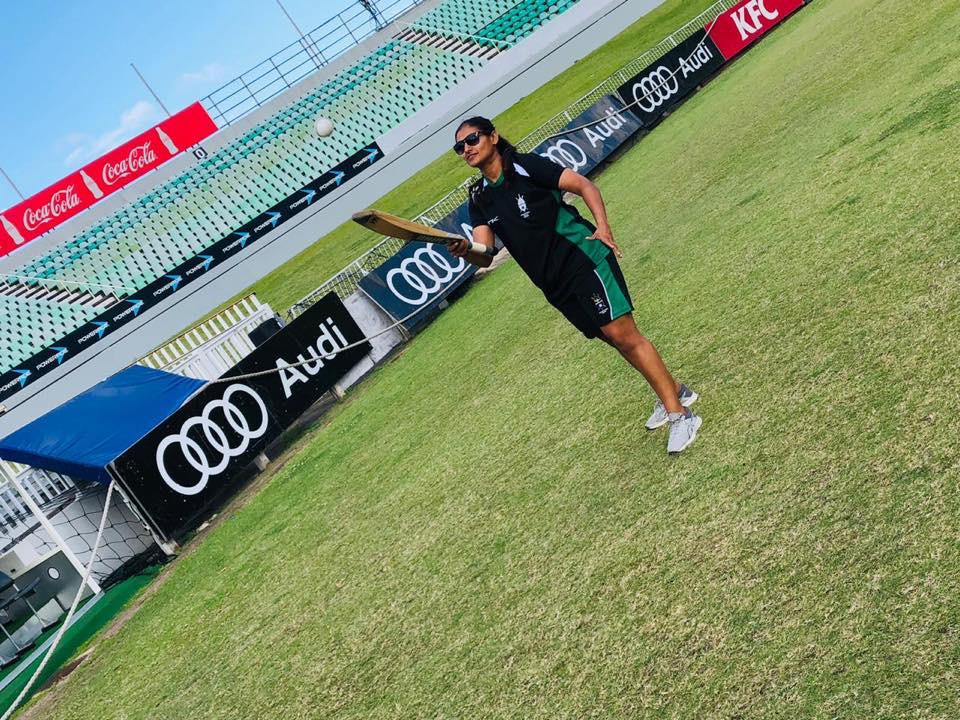
In your opinion, how much should or shouldn’t the coach intervene with the players' technique? Where does the coach draw the line?
I've always been a flair coach, I've always pushed players to be their own brand and it's a massive component of my coaching. In my capacity the only time I get involved with technique if I feel that the technique is biomechanically incorrect, so I intervene to prevent an injury, apart from that, the technique has different meanings to different players, but not set in stone for all.
How would you say social media platforms can play an active role in protecting public figures such as sportspeople?
Massively, they have a great influence on the public to interpret and analyse athletes, also security measures should be in a place where athletes are allowed to share parts of their lives but not have too much contact with the public. And systems in place for reporting any harmful comments
What effect do you think the fans have on the players? Especially those who are critical/negative/discriminatory? How can we address this effectively?
I believe a very few can separate themselves from the public in terms of that and still be okay to go on their daily routines but largely I feel it affects most athletes, and it's really demeaning and sad actually, athletes try and change behaviours to start increasing the fan base or likes and it usually comes from a place that the athlete just wants to feel admired.
When athletes do well, praise and glory is there but on the other spectrum, it's not the same and I feel this is where athletes may need training or mental mechanisms to overcome such situations.
We need the processes to be the same when things are going well and more importantly when they are not, let that remain consistent rather than always expecting consistent performances because that isn't guaranteed.
But if you emulate behaviour patterns and certain process detached from performances, that should be your regained mental space regardless of your performance because it's a familiar place.
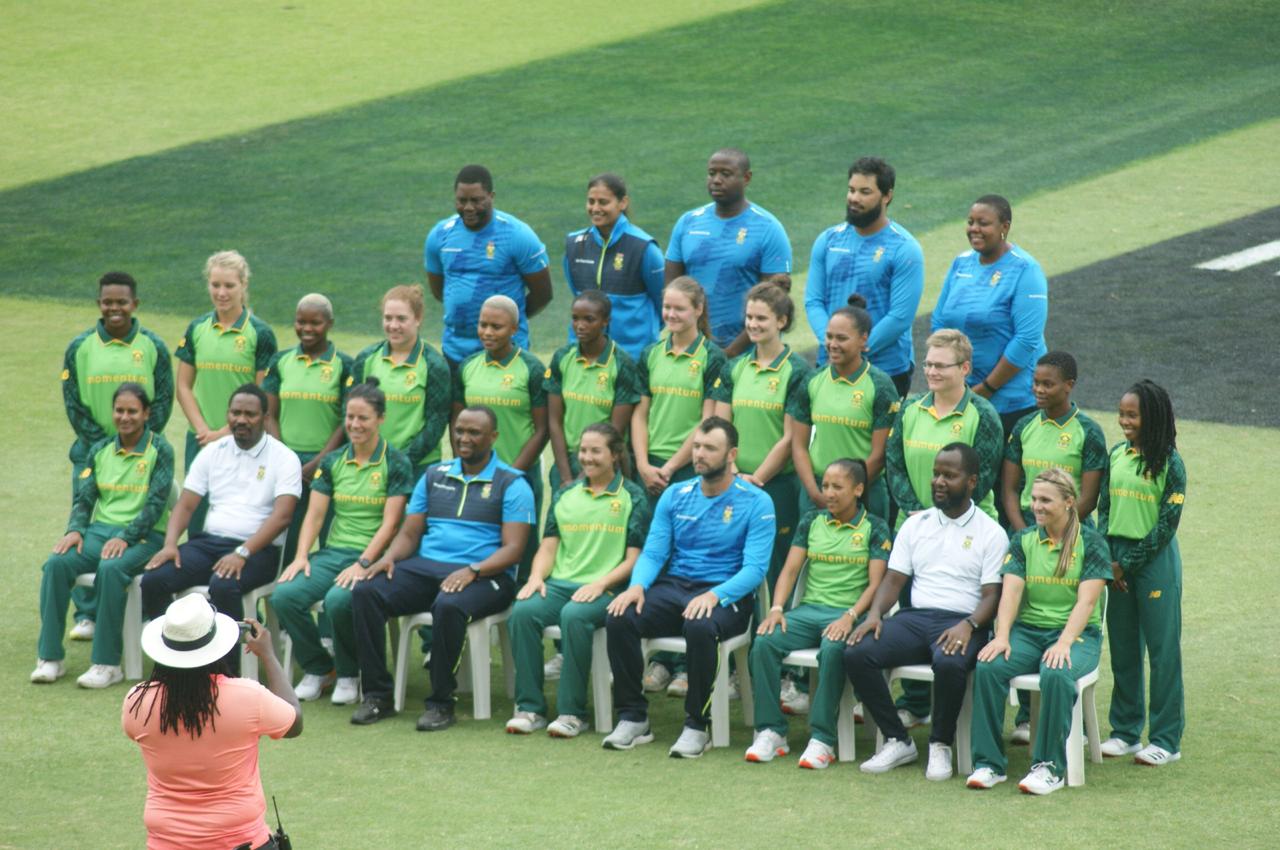
As a former player, how did you know you wanted to take on a coaching role? Elaborate about the mindset shift from thinking as a player to thinking as a coach.
I actually just really loved working with people and seeing them get better, I enjoyed seeing people being successful and I use that through coaching only, after I completed my level III, I decided I am in a position to make people's lives better and nothing motivates me more than that.
It's actually not that different apart from now you just don't play the game anymore and you not thinking about 1 person but a whole system and if you ask me that's a massive honour actually.
It's all about making the game better, people growing and players becoming better humans first before better cricketers.
What is your approach when it comes to failure?
There's no such thing as failure, only learning.
Take out what you need from me, learn from it, and get better at it.
Always remember the sport shouldn't define you as a person, one good season isn't gonna make you a great athlete and one bad season isn't gonna make you a bad athlete but you as a person should ways strive to be better.
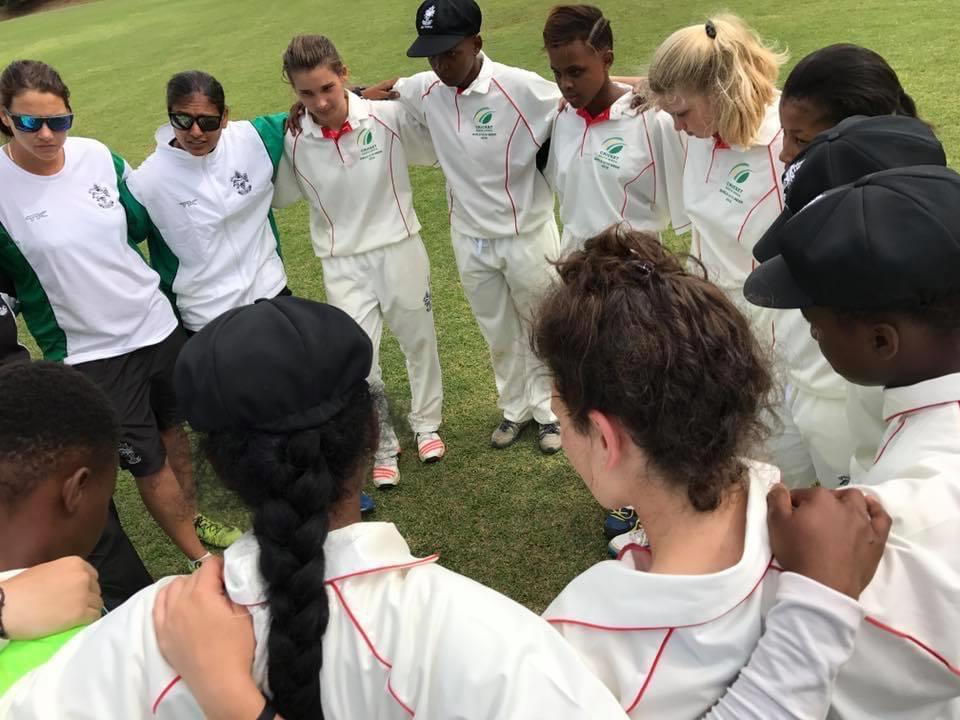
Describe your chill day.
If not at the beach, fishing. Then a nice braai with good music, lots of laughs and good vibes
What are your top 5 songs that get you in the zone/motivated or just to relax?
I love all types of music but please don't judge [haha]
Any song from Adele gets me in the zone 😅 I enjoy old school RnB and anything good for my soul. The likes of Whitney Houston, Celine Dion and some Rihanna too is good
If you had a pet flamingo, what would you name it?
Bingo, my Flamingo 😅
What is your favourite/least favourite food? Why?
My favourite is any meal cooked by my mum especially her mutton and samp, least favourite - I don't have too many, I love food!
Who inspires you the most?
My mum - I swear she has superpowers
And life in general, people inspire me, people, that wanna see each other grow and succeed
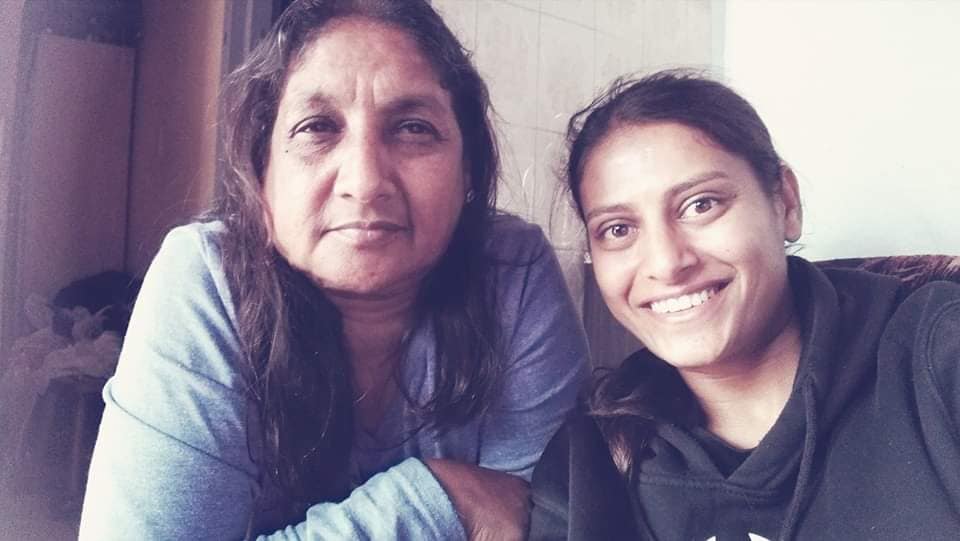

Words of motivation for young aspiring women cricketers who want to have a career in cricket but face obstacles, i.e., lack of resources, facilities, funding etc.
It's always impossible until you take the first step to reach your goals, but you have to preserve it, nothing great in life comes out from easily paved roads.
Be authentic, at least then if you know if it didn't work out, it was on your terms, you were holding the pen to your story and not another person.
Always make sure you smile and have fun.
Offside Maidens
Daily Show | Let's talk about it
Video Playlist
The Podcast Live Show:
Exclusive Interviews
Crossword Puzzle
Meet the CFM Team!
ISSUE 11: Crossword Answers
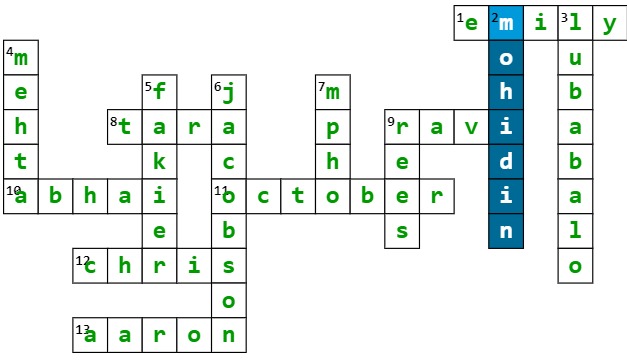

Magazine info
Editorial Director
Khalid Mohidin
IT and Technical Director
Faizel Mohidin
Contributors
Abhai Sawkar
Aditya Mehta
Chris Chiwanza
Emily Norris
Jessica October
Janine October
Khalid Mohidin
Licia Woods
Marc Jacobson
Ongama Gcwabe
Tara-Lee
Graphics
Khalid Mohidin (Cover and Graphics)
Mohammed Hoosain (CFM logo)
Images
BackpagePix
Supplied
Twitter
Facebook
Video Binge List:
On Lockdown Series
The Podcast Show
Legends with Ravi
Daily Show
